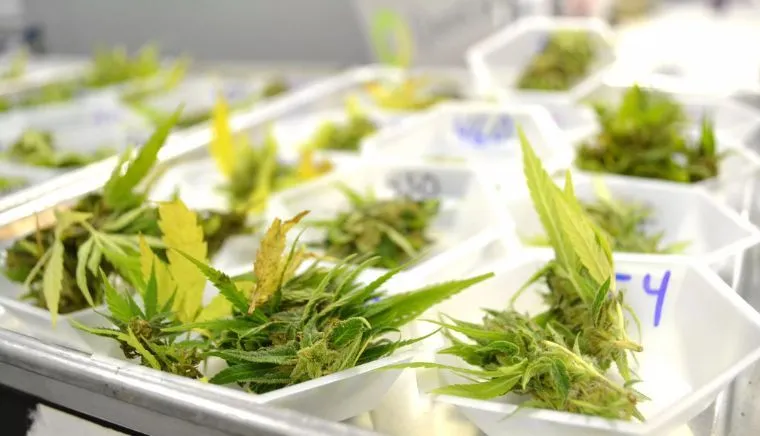Researchers and students of the University Centers of Exact Sciences and Engineering (CUCEI) and Health (CUCS) of the University of Guadalajara study β-cariofilene, a molecule that has had useful uses proven in the treatment of anxiety and depression.
This non -addictive molecule is found in some herbs of culinary use, such as basil, oregano, rosemary, black pepper, smell nail, among others, but also marijuana (cannabis sativa), which is the source of which researchers aredoing your job.
Scientists have expanded the research of β-cariophylene and examine their effect on glucose metabolism, neuropathic pain and depression associated with diabetes.
The person in charge of the research is the science doctor Juan Manuel Viveros Paredes, a professor of the Department of Pharmacobiology of CUCEI, who says that in the cannabis plant there are more than 400 compounds, of which 140 are terpenoid-Cariofilene.
According to information published by the ID agency, Dr. Viveros Paredes said that “so far the results in vivo in rodents are encouraging to think that with a single daily dose taken regularly from this molecule there could be a multiple effect against any type of diabetesbadly treated chronicle and their sequelae, without the need for several drugs.It may be a adjuvant of already prescribed therapies. ”
The study of Dr. Viveros Paredes and his team worked with rodent groups that presented diabetes.After the administration of the β-cycling molecule, a reduction in blood glucose concentration was observed.Pain by neuropathies associated with the condition was also reduced and the depression caused by the same disease and drugs to treat it was even controlled.
"We observed that the diabetes mice showed greater immobility with respect to our control group, and also that the group treated with β-cariophylene," adds the student of the PhD in Science in Biotechnological Processes, of the CUCEI.However, in which it was treated with the substance they reversed immobility and, therefore, depression, ”explained the teacher Dalia Samanta Aguilar Ávila, a member of the scientific team.
The study also participated in the Biomedical Research Center of the West, the Mexican Social Security Institute (IMSS) and the University of Bern, in Switzerland, an institution that isolates and characterizes the β-Caryophylane of Cannabis.


